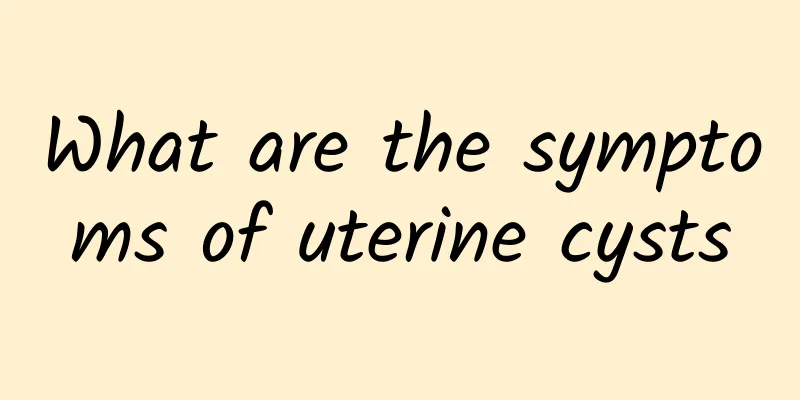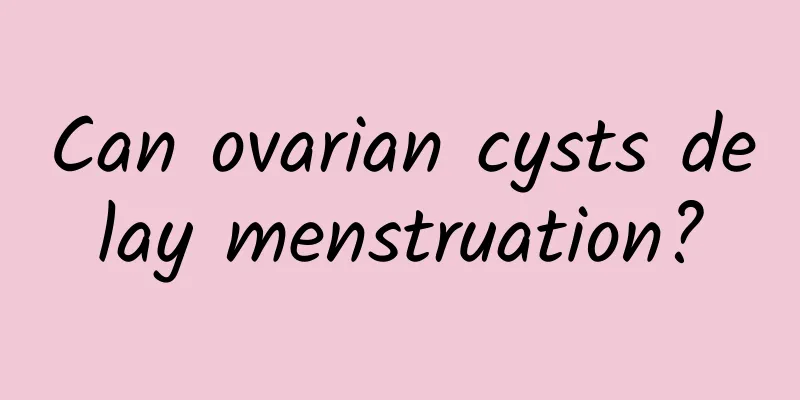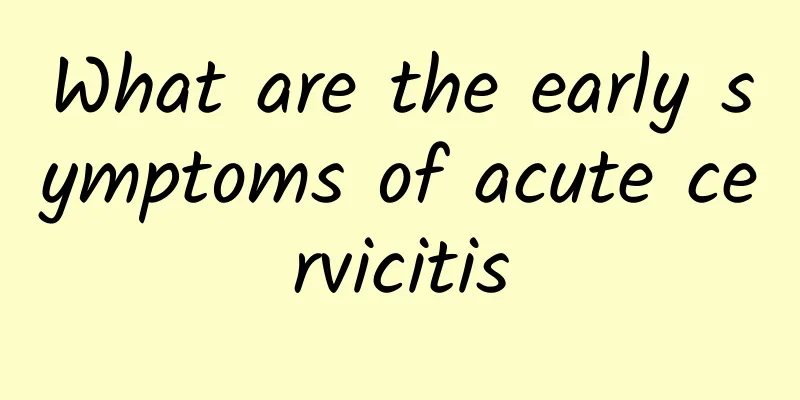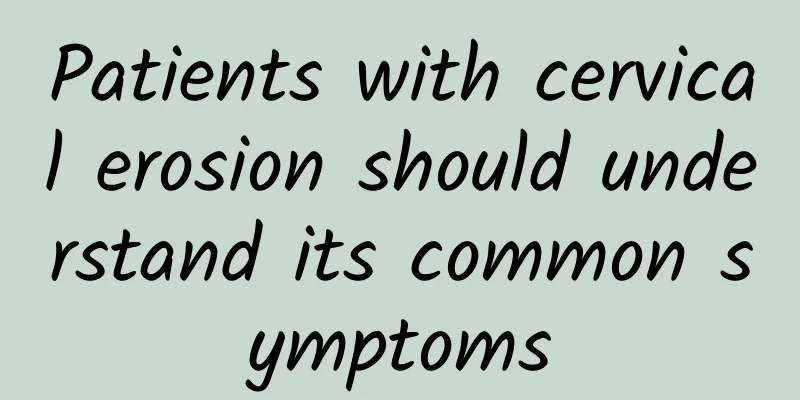What are the symptoms of uterine cysts

|
The symptoms of uterine cysts depend on their size, location and cause. Small cysts usually have no obvious symptoms, while large or complex cysts may cause abdominal pain, menstrual disorders, infertility and other symptoms. In severe cases, timely medical treatment is required. Common symptoms include abdominal discomfort, menstrual abnormalities and pelvic pain. It is recommended to screen and diagnose and treat as soon as possible according to the symptoms. 1. Abdominal discomfort: When a uterine cyst is small, it may be ignored. However, when the cyst gradually grows, it will compress the surrounding tissues, causing abdominal distension, a feeling of heaviness, or mild discomfort in the waist and abdomen. If the cyst suddenly ruptures, it may also cause severe abdominal pain. In such cases, you need to go to the hospital immediately. Treatment options include symptomatic analgesics, and in severe cases, laparoscopic surgery can be used to remove it. 2 Menstrual disorders: Uterine cysts may interfere with the normal function of the endometrium, leading to abnormal menstruation, including menorrhagia, prolonged menstruation, or severe menstrual pain. These symptoms are often mistaken for common dysmenorrhea, but if they persist, you should be alert to uterine diseases. For menstrual disorders, common treatments include endocrine regulating drugs such as progesterone or surgical removal of cysts to restore normal cycles. 3 Infertility and associated symptoms: If the cyst affects the morphology of the fallopian tube or uterus, it may reduce the probability of pregnancy in women, and some patients may also experience compressive symptoms such as frequent urination and urgency. Treatment methods include assisted reproductive technology for infertility, or surgical removal and restoration of the normal anatomical structure of the reproductive system. Large or symptomatic cysts always require evaluation by a doctor, and imaging tests such as ultrasound can be used to determine the nature of the cyst. Treatment options include medication control, puncture therapy, or surgical removal, depending on the patient's specific circumstances. For asymptomatic cysts, regular follow-up can be performed to monitor changes. If women experience persistent abdominal discomfort, menstrual disorders or reproductive problems, they should consult a professional as soon as possible to avoid delays in the treatment of the disease. Developing good habits of regular physical examinations and paying attention to their own health is an important way to prevent and detect cysts early. |
<<: How to relieve the pain in my stomach during my period
>>: Is vaginitis and adnexitis difficult to treat?
Recommend
What are the clinical manifestations of menopausal syndrome?
Menopause syndrome is something everyone must go ...
Female endocrine disorders are the main culprit of vulvar leukoplakia!
As the incidence of vulvar leukoplakia has remain...
What are the causes of irregular menstruation in women? These 4 major causes of irregular menstruation are very common
Among gynecological diseases, irregular menstruat...
A combination of coarse and fine ingredients nourishes the liver! Red Sweet Potato Salad
"Take care of your liver!" But don'...
Can I have a medical abortion at the age of 42? What are the standards for medical abortion?
There are also some women who do not take protect...
How to treat moderate cervical erosion in women? Several best treatments for moderate cervical erosion
Many women suffer from cervical erosion due to va...
Sculpt the lower body curve! Do hip and leg stretches
Why not stretch your hips while watching TV? As l...
What is cervical precancerous lesions?
Cervical precancerous lesions are a tumor disease...
What drugs are used to treat vaginal candidiasis
What drugs are used to treat candidal vaginitis? ...
What anti-inflammatory drugs should I take after painless abortion? Do I need to take anti-inflammatory injections after painless abortion?
Painless abortion is a common gynecological surge...
What are the causes of infertility caused by chronic pelvic inflammatory disease?
Chronic pelvic inflammatory disease is a very com...
Five little tricks to keep you away from cervicitis
Cervicitis is a common cervical disease caused by...
Stressed out, muscles tense... do Yin yoga tonight to relax your lower body
Do you often feel stressed at work, have tight mu...
Get rid of abdominal fat during menopause ~ 3 teas to remove moisture, reduce fat and lose weight
Menopause is a problem for many women. Surveys ha...
Is cervical erosion hereditary?
Is cervical erosion hereditary? This is a concern...









